“Individual commitment to a group effort -- that is what makes a team work, a company work, a society work, a civilization work.” - Vince Lombardi
Growing up in Central Texas you have three choices for your favorite basketball team; the Houston Rockets, San Antonio Spurs or the Dallas Mavericks. Being from Texas I’d have to admit, I’d be happy to see any of them win the NBA Finals. Well in 1995 either the Houston Rockets or the San Antonio Spurs would be one of the teams playing in the NBA Finals because they were facing each other in the Western Conference Finals. That year, David Robinson, the Center for the San Antonio Spurs, was awarded the League MVP award. Just before the first game of the Western Conference Finals Series with the Rockets, they awarded the trophy to David Robinson in front of a sold out crowd. At that game the NBA League MVP from the previous year was looking on. Hakeem Olajuwan and his Houston Rockets were looking to defend their NBA championship crown from the previous year. Seeing that trophy awarded to another player right in front of him… well maybe that’s the little bit of motivation that Hakeem Olajuwan needed for that series.
The player spotlight for the entire series was on Olajuwan and David Robinson. It has been chronicled as one of the greatest NBA player matchups in a playoff series. It is also seen as one of the greatest dominations of one player over another. Olajuwan was in the zone the entire series. The Rockets defeated the Spurs in the series and moved on to face the Orlando Magic in the Finals where they won a second consecutive NBA championship title.
Seneca, a Roman philosopher in the first century AD said, “Luck is when preparation meets opportunity.” Hakeem had been preparing his entire life to be one of the greatest basketball players in the world. He wasn’t lucky in that series. He was prepared. His preparation had met its opportunity. When a person performs at a very high level utilizing the skills they have been trained for, amazing production can take place. We have probably all experienced this at one time in our life. When you are working on a project and the time seems to just fly by. Before you know it, you’ve completed the work and don’t even remember taking a break or watching the clock tick away. When you look up from your work, it has been almost two hours and you thought it had only been 30 minutes… you were in a groove. Or, as Mihaly Csikszentmihalyi of the University of Chicago would say it, “you were in a flow.” Dr. Mihaly Csikszentmihalyi published his “flow” theory in the 1960’s and defined flow as “a state of being when challenge and capability meet at the right levels.”
This is an interesting theory that we can apply to our lives as leaders in business. When the members of your team are experiencing difficulty improving productivity, it may be that their motivation is waning due to a misalignment between their challenge and their capabilities. By adjusting one or the other, team motivations and productivity can also improve.
Challenge is greater than the Capability
When a team or individual is tasked with a challenge that exceeds their capabilities by a large margin, it will create stress and anxiety. If left in this state, they will also become disinterested and de-motivated. The solution for this scenario is to either replace the challenge with a task that is more attainable, or raise the team’s level of capability. For example, you may send the group to a training session. You could also assign an experienced mentor to the group to help lead them. Another thought would be to lower the challenge. Did you challenge the team with too much, too soon?
Capability is greater than Challenge
This scenario happens quite often in more experienced teams. When the tasks are no longer a challenge, the work seems to be mundane and boring. The solution in this case is to raise the level of the challenge. In many companies you may see experienced individuals asked to take on roles in new areas of the business. They may be asked to cross-train in other areas of the company or even serve as a mentor to others. If you are in sales, you experience this every year when you get your new quota. They don’t ever seem to go down, do they?!? Another thought for increasing the challenge with an individual is to cross-train them in other areas or assign them to a new department where they will be able to utilize their acquired skills in new and challenging ways.
This theory can be helpful to team leaders, but there is always the issue of passion. My daughter absolutely loves to cross-stitch. She will sit for hours working on a cross-stitch picture with a needle and thread. I’ve seen her do the work before and it is really not that difficult, just time consuming. That is why she was able to master the required skills by the age of 8. If I were asked to create a cross-stitch picture, my skill and capability would be sufficient. Because of the lack of challenge, I would become bored. I would not be in “flow.” Then again, neither is my daughter. She has mastered the skill and I’m confident it is really not much of a challenge to her at all. The question then becomes, “Then why will she sit for hours working on cross-stitching when I would be hard pressed to do it for more than 5 minutes without becoming bored?” The answer is passion. She absolutely LOVES to create cross-stitch art. Whether she gives it away, the work clears her mind, she can see immediate results or she just likes playing with needles, I’m not sure. But I do know she has a real passion for it. So while adjusting challenge and capability can keep your team in flow, ultimately if they do not have a passion for what they are doing, the productivity will still eventually drop off. Remember, it’s not luck! It’s preparation meeting opportunity. Help your team match their capabilities to their challenges to keep them in their flow… and don’t forget to help them find their passions too!
************** For information on Re-Printing this article *****************
****************** please contact info@ispeak.com ******************
©Copyright 2009 iSpeak Inc.

